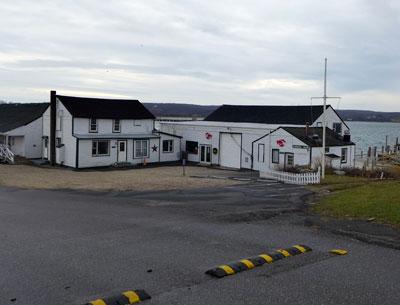The Good and the Broken

This is the time of year when we seem duty-bound to reflect upon the year just past. I suspect a formalized, perennial look back has always been part of our basic makeup on whatever calendar, and upon whatever date, was chosen as the start of a new year.
The day after Christmas, I had the privilege of attending a small gathering of Montaukers hosted by Chip Duryea in an enclosed area of the Duryea and Son lobster pound and restaurant on Fort Pond Bay. There were about a dozen of us, including a few of the hamlet’s elders — to be honest none of us were spring chickens.
The building we were in and its surrounding structures and dock are the last vestiges of the old Montauk fishing village, most of which was moved to its present location following the devastation of the 1938 hurricane, and the Navy’s takeover of Fort Pond Bay during World War II.
A couple entered our dining room, ordered, and had their lunch while we palavered about the past. If they were listening, they got a history lesson.
We talked about the superior taste of bluefish compared to striped bass. I thanked Chip for keeping broiled bluefish on his menu, as far as I know the only restaurant in Montauk to do so.
We talked about cooking sea ducks, mergansers and scoters, and Vinnie Grimes offered up the old joke about how the best way was to soak the “coot” with a wooden board in saltwater, place the coot on the board in the oven, then throw away the coot and eat the board. Chip and I disagreed and praised sea ducks for their flavor.
Duryea and Son has been sold, including the house across Tuthill Road that has been home to the Duryea family for five generations. Next season will be its last, and Chip said the house might be razed.
Gene Beckwith, our eldest guest, told how the house had been rolled on logs from behind Ruschmeyer’s restaurant down Industrial Road to its present location. And, he told how the old Napeague Coast Guard station was moved across the Napeague isthmus, lifted onto a raft in Napeague Harbor, and towed by Carl Darenberg Sr. through the Montauk Harbor entrance to its present location on Star Island. “And they hit some weather,” Beckwith recalled with a chuckle.
Likewise the Ditch Plain Coast Guard station, which was moved upland to become a restaurant and boarding house. Its garage is still used by denizens of the “trailer park,” a k a Montauk Shores Condominiums. “They used to move houses,” Beckwith said. A number of houses along Flamingo Avenue were moved from the bay, as were the cabins that make up the East Deck Motel.
Chip said he and his wife, Wendy, had bid on the windmill section of the Rheinstein estate back in the ’70s, with a thought of building a house around it, but Peter Beard scooped it up, hoisted it by helicopter onto a flatbed truck and moved it east down Montauk Highway to his Moorland property, where it later burned to the ground.
It occurs to me that years pass like houses moved rather than razed. We don’t start from scratch. We bring the good and familiar, and we store the worn and broken like hoarders. Their repair becomes part of our future.
I thought about the past year and realized that most of what stood out were experiences and events tied to nature: being towed on my kayak by a big bluefish I’d hooked, the day we sailed Leilani on a starboard tack from Gardiner’s Island to the harbor in a 17-knot wind, sails in perfect trim as the sun set, the sharing of some exceptional waves with friends, feeling part of a community that rose up against the development of the East Deck Motel property, watching glorious sunrises on the lake, inhaling the rich smell of a productive scallop season — the essence of our bays — inside the Lesters’ shucking shack in Amagansett.
And, I guess because of this column, I remember the many friends and acquaintances who stopped to tell me of whales they’d seen, fish they’d caught, birds they’ve watched, a beached turtle saved, and, last week, a friend who stopped his truck and rolled down the window to tell me he’d seen herring, “dead, they’re probably mostly bones now, down on the beach by Stewey’s trap.”
Imagine being so lucky as to have someone realize that I’d be as fascinated as he about a bunch of herring skeletons in the windrows and wrack lines of Fort Pond Bay.
“Auld Lang Syne” is how Robert Burns expressed “times gone by” in the Scottish tongue. One stanza of the song that will be slurred, shouted, and mouthed at midnight tonight seems to have been written especially for this place:
We two have paddled in the stream
From morning sun till dine;
But seas between us broad have roared
Since Auld Lang Syne.
